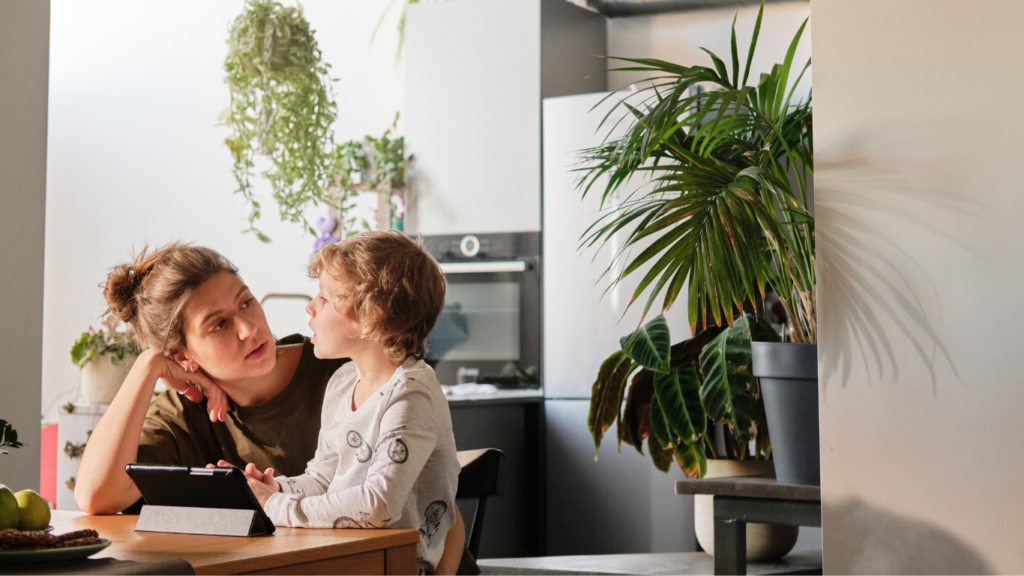Parenting is filled with moments that test us, shape us, and sometimes leave us questioning if we’re doing it right. I thought I had all the answers until one simple conversation shifted everything I believed about being a parent. It wasn’t about giving advice or fixing a problem—it was about truly listening.
In that moment, I realized how often I’d been too quick to respond instead of pausing to hear what was really being said. That single act of listening opened a door to deeper understanding and connection with my child. It taught me that sometimes, the most powerful thing we can do as parents is to simply be present and let our kids feel heard.
The Importance Of Listening In Parenting
Listening forms the foundation of meaningful parent-child relationships. It’s a skill that transforms how children communicate and feel valued.
Why Listening Matters More Than Talking
Focusing on listening fosters trust and openness. When I prioritized listening over offering advice, my child felt more comfortable sharing. Talking may feel like guidance, but it often limits a child’s ability to express their thoughts. Active listening acknowledges emotions and promotes emotional growth. Listening without interruptions also teaches children that their voice matters, instilling confidence.
Observing The Impact Of Being Heard
Children thrive when they feel heard. I noticed my child’s behavior and mood improved significantly when they felt understood. They became more cooperative and willing to discuss challenges openly. For example, my child shared frustrations regarding school that they’d hidden before. This openness helped us address the problem effectively together. Recognizing the transformative impact of listening reinforced its role in strengthening our connection.
The Conversation That Sparked A Transformation

One evening, a simple conversation with my child shifted everything I thought I knew about parenting. Listening attentively in that moment revealed truths I hadn’t acknowledged before.
A Moment Of Revelation
My child was upset about a conflict at school. Instead of offering advice immediately, I chose to stay silent and let them talk. As they shared, I realized how often I had interrupted in the past, assuming I knew the answers. That pause gave them space to fully express their emotions, and for the first time, I saw how much relief they found in simply being heard. It wasn’t my solutions they were seeking; it was my attention.
That experience illuminated how much my reactions shaped their willingness to open up. When I refrained from judgment or unsolicited advice, they became more comfortable sharing vulnerabilities without fear of criticism or dismissal.
Key Takeaways From That Conversation
- Active listening builds trust: Allowing my child to speak uninterrupted showed them their thoughts mattered, reinforcing trust in our relationship.
- Acknowledging emotions fosters connection: Validating their feelings—without minimizing or dismissing—helped them feel understood, making them more willing to confide in the future.
- Silence encourages openness: Pausing during the conversation created space for them to expand on their thoughts rather than shutting down.
- Changing my approach improved communication: By reframing my focus from solving problems to understanding their perspective, I strengthened our bond and increased mutual respect.
That single conversation demonstrated the importance of prioritizing listening over providing solutions, a shift that completely transformed my parenting perspective.
Lessons Learned From Practicing Active Listening
Practicing active listening transformed how I interacted with my child, reinforcing trust, understanding, and emotional connection. It reshaped our dynamic, teaching me to value silence and presence over instant solutions.
Building Trust And Understanding
Active listening cultivated a sense of safety and trust between me and my child. When I began listening without interruption, it encouraged my child to open up about their thoughts and feelings more freely. Through this, I noticed they became more willing to share personal experiences, even difficult ones, without hesitation. For instance, during a conversation about school conflicts, simply letting them speak without interjecting helped them feel acknowledged. This mutual respect strengthened our relationship and deepened my understanding of their perspective.
Strengthening Emotional Bonds
By focusing on listening rather than reacting, I observed a noticeable improvement in our emotional connection. Acknowledging my child’s emotions, whether through a simple nod or empathetic words like “I understand,” validated their feelings and fostered a deeper bond. When they saw I truly cared about what they were saying, even mundane topics became opportunities for connection. This attentiveness taught them that I valued their emotions, which encouraged reciprocal empathy and shared moments of closeness, such as heartfelt discussions about their day.
Overcoming Challenges In Communication
Effective communication in parenting requires intentional effort, especially when unhelpful patterns exist. I learned to address common obstacles like interrupting and misunderstandings to improve my connection with my child.
Breaking Habits Of Interrupting
I often interrupted my child unintentionally, driven by a desire to advise or fix problems quickly. This disrupted their thought process and made them feel dismissed. To break this habit, I practiced staying silent during conversations, letting my child express themselves fully before responding. I also reminded myself to focus on their words rather than formulating my reply. Over time, this shift encouraged my child to share without hesitation, deepening our trust.
For example, during a conversation about a tough school project, I resisted offering immediate solutions. Instead, I listened attentively, allowing my child to explain their frustrations. This approach not only helped me understand their perspective but also showed them that their voice mattered more than my input.
Handling Misunderstandings With Patience
Misunderstandings used to escalate quickly when I reacted emotionally rather than pausing to clarify my child’s intentions. I realized that to resolve these moments effectively, I needed to approach them with patience. When disagreements arose, I prioritized asking open-ended questions to uncover underlying concerns, ensuring they felt heard and validated. This practice reduced defensiveness and encouraged honest communication.
For instance, after a homework argument, I calmly asked why my child seemed upset instead of assuming noncompliance. They explained they felt overwhelmed, which shifted the focus from blame to support. Addressing the root cause improved our understanding and turned conflicts into opportunities for connection.
By breaking these unhelpful patterns, I transformed our communication dynamic, creating a safer and more empathetic space for interaction.





